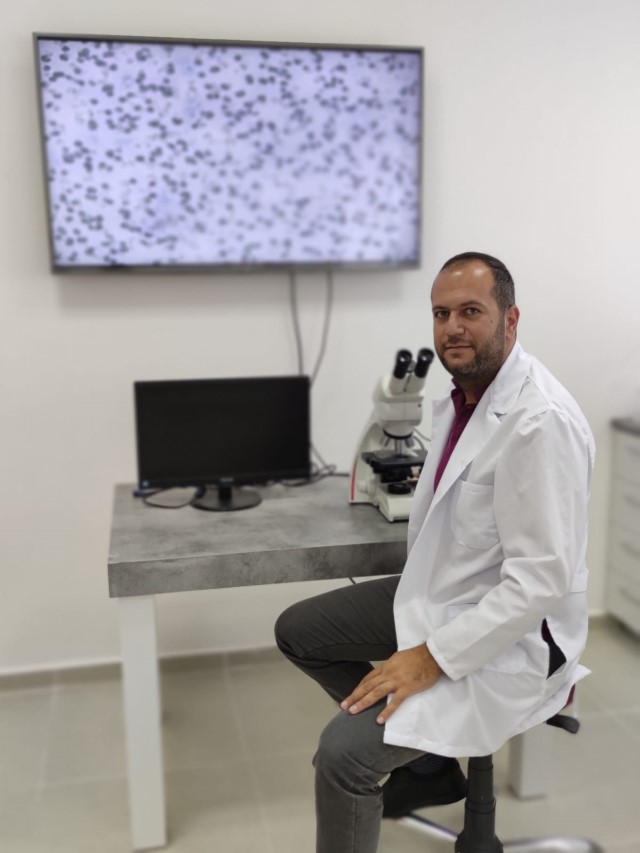Contribution to the book “Medical Microbiology and Infectious Diseases for Nurses” by EUL Academician Özyel

European University of Lefke (EUL) Health Services Vocational School Director Asst. Prof. Dr. Besim Özyel co-authored the book titled “Medical Microbiology and Infectious Diseases for Nurses”, which was published by Hipokrat Publishing, one of the leading medical publishing houses in Turkey. Prof. Dr. Ahmet Başustaoğlu and Prof. Dr. A. Dürdal Us who are doyens of microbiology in Turkey, edited the book and many scientists who have proven themselves in their fields have contributed. In this book, Asst. Prof. Dr. Özyel was the author of the section titled “Evaluation and Interpretation of Biochemical and Hematological Tests Used in the Diagnosis of Infectious Diseases”..
Özyel said the following about the section he wrote: “I have been teaching nursing students at undergraduate and graduate levels for a long time, helping them to contribute to nursing research. During these processes, I observed that nurses undertake many important tasks in the protection and continuity of human health. It is of great importance to ensure that they acquire their knowledge and skills completely during the training processes that we prepare for these duties. Considering that infectious diseases are the most frequently encountered diseases in health services and can cause serious consequences, we can see that clinical microbiology and infectious diseases are the main subjects that all healthcare professionals should consider during their education and after graduation. While the microbiological, serological and molecular methods used to reach the diagnosis in infectious diseases directly contribute to the diagnosis of the disease by determining the infectious agent, the findings obtained by biochemical and hematological methods, which are faster and easier to apply in some cases, can indirectly contribute to the disease diagnosis process of the physician. In particular, the section I have prepared has focused on the evaluation and interpretation of biochemical and hematological tests used in the diagnosis of infectious diseases.”
Özyel said, “The relations between the clinic and the laboratory first start with the sampling in the clinic,” and that according to the results of some recent studies, it can be seen that the nurses’ knowledge level about clinical samples is insufficient, and that in the diagnosis process of the diseases, the samples are taken correctly and effectively, by ensuring patient safety, and under appropriate conditions. Considering that it is essential to send it to the laboratory, he pointed out that nurses should improve their knowledge level about clinical samples and keep this information fresh all the time.
Özyel finally shared the following information in his explanation: Appropriate sample collection, sending the samples to the laboratory under appropriate conditions, tracking the results and delivering them to the physician correctly are of great importance for the diagnosis of diseases and the determination of the treatments to be applied by the physician. In this book chapter, besides explaining the importance of correct sample collection in the clinic, evaluation and interpretation of biochemical and hematological tests and cerebrospinal fluid analysis are also mentioned. Concluding his words, Özyel said, “I would like to emphasize that the history of humanity has witnessed infections that led to major epidemics. Despite all the medical and technological developments in the field of health, COVID-19, which emerged in 2019, is the closest example of these epidemics that we are currently experiencing. In order to protect from this epidemic, we should trust the scientists and health authorities of the country we are in, while paying attention to the mask, distance and hygiene rules, and complete our vaccinations as recommended.
